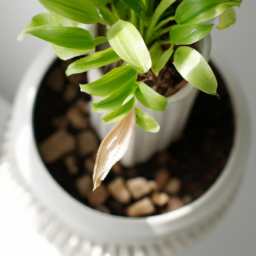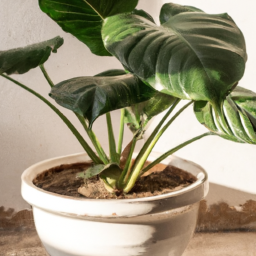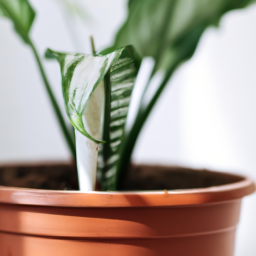
Are you looking for a simple and natural way to improve your well-being? Look no further than indoor plants with health benefits. These green companions not only add a touch of beauty to your living space but also offer a range of advantages for your physical and mental health. Whether you’re a seasoned plant enthusiast or just starting to explore the world of indoor gardening, this blog post will introduce you to the wonderful world of indoor plants with health benefits. From purifying the air to reducing stress levels, these plants have the power to enhance your overall quality of life. So, let’s dive in and discover how these leafy wonders can transform your indoor environment into a sanctuary of health and wellness.
Benefits of Indoor Plants on Air Quality and Health
Introduction
Indoor plants not only add beauty and a touch of nature to our living spaces but also offer numerous health benefits. These green companions have been proven to improve air quality, reduce stress levels, boost mood, increase productivity, and even enhance our overall well-being. In this guide, we will explore the various ways in which indoor plants can positively impact our health and provide a step-by-step approach to incorporating them into your home or office environment.
Improving Air Quality
Indoor air pollution is a significant concern, especially in modern buildings where ventilation may be limited. Volatile Organic Compounds (VOCs) emitted by furniture, cleaning products, and synthetic materials can accumulate and lead to various health issues. Fortunately, indoor plants can act as natural air purifiers by absorbing these harmful substances and releasing oxygen. Some of the best plants for improving air quality include:
1. Spider Plant (Chlorophytum comosum): Known for its ability to remove formaldehyde and xylene from the air, spider plants are easy to care for and can thrive in various lighting conditions.
2. Peace Lily (Spathiphyllum): This elegant plant not only adds a touch of beauty but also removes harmful chemicals like benzene, trichloroethylene, and ammonia. It thrives in low to medium light conditions.
3. Snake Plant (Sansevieria trifasciata): Snake plants are excellent for filtering out toxins like formaldehyde and benzene. They are extremely resilient and can tolerate low light and irregular watering.
Reducing Stress and Boosting Mood
In today’s fast-paced world, stress has become a common issue that can have adverse effects on our mental and physical well-being. Indoor plants have the remarkable ability to reduce stress levels and promote relaxation. The presence of greenery has been shown to lower blood pressure, heart rate, and cortisol levels. Here are a few plants known for their stress-reducing properties:
1. Lavender (Lavandula): Known for its soothing aroma, lavender can help alleviate anxiety and promote better sleep. Consider placing a potted lavender plant in your bedroom or living room.
2. Aloe Vera (Aloe barbadensis miller): Apart from its medicinal properties, aloe vera also emits oxygen at night, making it an excellent bedroom companion for improved sleep quality.
3. Boston Fern (Nephrolepis exaltata): With its lush foliage, the Boston fern acts as a natural humidifier, adding moisture to the air and reducing dryness, which can contribute to stress and respiratory issues.
Increasing Productivity and Well-being
Indoor plants not only enhance the aesthetics of a space but also have a positive impact on productivity and overall well-being. Numerous studies have shown that incorporating greenery into workspaces can lead to increased focus, creativity, and job satisfaction. Here are three plants that can boost productivity and overall well-being:
1. English Ivy (Hedera helix): English ivy is known for its ability to reduce airborne mold particles, making it an excellent choice for offices or areas prone to dampness. It can thrive in low light conditions.
2. Areca Palm (Dypsis lutescens): This palm tree is not only visually appealing but also acts as a natural humidifier, adding moisture to dry office environments. It prefers bright, indirect light.
3. Golden Pothos (Epipremnum aureum): Golden pothos is a versatile and low-maintenance plant that can thrive in various lighting conditions. It has air-purifying properties and is known to remove toxins like formaldehyde and carbon monoxide.
Conclusion
Indoor plants offer a multitude of health benefits, ranging from improved air quality to reduced stress levels and increased productivity. By incorporating plants like spider plants, peace lilies, lavender, and English ivy into your living or working spaces, you can create a healthier and more inviting environment. Remember to choose plants that suit your lighting conditions and care requirements to ensure their longevity. So go ahead, bring the beauty of nature indoors and reap the many rewards it has to offer.
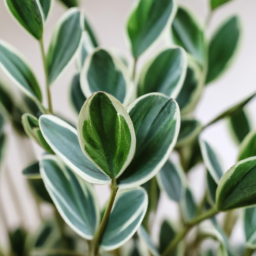
Top Indoor Plants for Improving Mental Health and Well-being
Indoor plants not only add beauty and freshness to our homes and offices but also have numerous health benefits, especially for our mental well-being. Research has shown that being surrounded by greenery can reduce stress, improve mood, increase productivity, and enhance overall mental health. If you are looking to improve your mental well-being, here are some top indoor plants that can help:
1. Snake Plant
The Snake Plant, also known as Sansevieria or Mother-in-law’s Tongue, is a popular indoor plant that is not only easy to care for but also offers excellent mental health benefits. This plant is known for its air-purifying properties, as it can remove toxins like formaldehyde and benzene from the air. In addition, the Snake Plant releases oxygen at night, making it a great plant to keep in your bedroom for a better night’s sleep.
Furthermore, the Snake Plant has been proven to enhance concentration and productivity. Its unique ability to convert carbon dioxide into oxygen during the day can help improve cognitive function and increase focus. This makes it an ideal plant to have in your home office or study area.
Lastly, the Snake Plant is known for its ability to absorb electromagnetic radiation emitted by electronic devices such as computers and televisions. By reducing the exposure to these harmful radiations, the Snake Plant can help alleviate symptoms of stress, anxiety, and fatigue.
2. Peace Lily
The Peace Lily is a beautiful indoor plant that not only adds elegance to any space but also has a positive impact on mental health. This plant is known for its ability to improve air quality by removing pollutants such as formaldehyde, benzene, and trichloroethylene. Breathing in cleaner air can have a significant impact on our mood and overall well-being.
Moreover, the Peace Lily has been shown to reduce symptoms of anxiety and depression. Its lush green leaves and white flowers create a calming and peaceful atmosphere, promoting relaxation and reducing stress levels. The presence of this plant in your living room or bedroom can create a soothing environment, helping you unwind after a long day.
Additionally, taking care of a Peace Lily can be a therapeutic activity in itself. Nurturing and tending to plants have been proven to reduce cortisol levels, the hormone associated with stress. The act of watering, pruning, and observing the growth of your Peace Lily can provide a sense of purpose and fulfillment, boosting your mental well-being.
3. Aloe Vera
Aloe Vera is not only a versatile plant with numerous health benefits but also a great addition to your indoor space for improving mental health. This succulent plant is known for its ability to purify the air by removing toxins like formaldehyde and benzene. Breathing in cleaner air can help improve cognitive function and enhance overall mental clarity.
In addition, Aloe Vera has a calming effect on the mind and body. Its gel-like substance contains compounds that promote relaxation and reduce anxiety. Having this plant in your bedroom or living room can create a tranquil environment, perfect for unwinding and destressing.
Furthermore, Aloe Vera is known for its healing properties. The gel extracted from its leaves can be used topically to soothe skin irritations and promote wound healing. Taking care of your Aloe Vera plant and utilizing its healing properties can provide a sense of empowerment and self-care, positively impacting your mental well-being.
In conclusion, incorporating indoor plants into your living or working space can have a significant impact on your mental health and well-being. The Snake Plant, Peace Lily, and Aloe Vera are just a few examples of indoor plants that offer numerous benefits, from air purification to stress reduction. By bringing these plants into your environment, you can create a healthier and more harmonious space that promotes mental well-being.
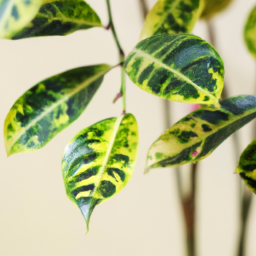
How Indoor Plants Can Enhance Productivity and Reduce Stress
Indoor plants not only add beauty and vibrancy to our living spaces but also provide numerous health benefits. In this article, we will explore how indoor plants can enhance productivity and reduce stress, ultimately improving our overall well-being.
The Power of Greenery
Research has shown that incorporating indoor plants into our work or study environments can have a positive impact on our productivity levels. The presence of greenery has been linked to increased focus, concentration, and creativity. Plants help to create a sense of calm and tranquility, allowing us to better engage with our tasks at hand.
Furthermore, indoor plants have been found to improve air quality by reducing levels of carbon dioxide and increasing humidity. This cleaner and more humid air can lead to better cognitive performance, helping us to stay alert and attentive throughout the day.
When it comes to reducing stress, indoor plants have a remarkable ability to create a soothing atmosphere. The color green has been associated with relaxation and stress reduction, and simply being in the presence of plants can have a calming effect on our minds and bodies. Studies have shown that interacting with indoor plants can lower blood pressure and heart rate, promoting a sense of tranquility and well-being.
Choosing the Right Indoor Plants
When selecting indoor plants for productivity and stress reduction, it’s important to consider factors such as maintenance, lighting requirements, and personal preferences. Here are a few popular indoor plants known for their health benefits:
1. Snake Plant (Sansevieria trifasciata): This plant is known for its ability to purify the air by removing toxins such as formaldehyde and benzene. It requires minimal care and can thrive in low light conditions, making it an ideal choice for busy individuals.
2. Peace Lily (Spathiphyllum): With its elegant white flowers, the peace lily not only adds beauty to any space but also helps to improve air quality by removing harmful pollutants. It prefers medium to low light and requires regular watering.
3. Spider Plant (Chlorophytum comosum): This resilient plant is easy to care for and can tolerate a wide range of lighting conditions. It has been found to effectively remove toxins like formaldehyde and xylene from the air, making it a popular choice for indoor environments.
Caring for Indoor Plants
Proper care is essential to ensure the health and longevity of indoor plants. Here are some general guidelines:
1. Light: Most indoor plants thrive in bright, indirect light. Avoid placing them in direct sunlight as it can cause leaf burn. If natural light is limited, consider using artificial grow lights.
2. Watering: It’s important to water indoor plants regularly, but be careful not to overwater. Check the moisture level of the soil before watering and adjust accordingly. Different plants have different watering needs, so research the specific requirements of your chosen plants.
3. Temperature and Humidity: Most indoor plants prefer temperatures between 60-75°F (15-24°C). They also thrive in environments with moderate humidity levels. If your home or office is particularly dry, consider using a humidifier or placing a tray of water near your plants.
By incorporating indoor plants into our living and working spaces, we can create a healthier and more productive environment. The benefits of greenery extend beyond aesthetics, providing us with cleaner air, reduced stress levels, and improved overall well-being. So why not bring some plants into your space today and experience the positive effects for yourself?
Summary Snapshot
Indoor plants not only add a touch of greenery to our homes but also come with a myriad of health benefits. These little wonders of nature do more than just beautify our living spaces; they have the power to improve our overall well-being. One of the most notable advantages of having indoor plants is their ability to purify the air we breathe. Through a process called photosynthesis, they absorb carbon dioxide and release oxygen, effectively increasing the oxygen levels in our homes. This can lead to improved air quality, reducing the risk of respiratory problems and allergies.
In addition to their air-purifying qualities, indoor plants also have a positive impact on our mental health. Studies have shown that being around plants can help reduce stress levels and promote relaxation. The presence of greenery has a calming effect on our minds, making us feel more at ease and fostering a sense of tranquility. Furthermore, indoor plants can boost our mood and productivity. Their vibrant colors and natural beauty have been found to enhance creativity and concentration, making them perfect companions for home offices or study areas. So, if you’re looking to spruce up your living space while reaping the health benefits, consider bringing some indoor plants into your home.
Your Questions Answered. Comprehensive FAQ:
Q1: What are some indoor plants with health benefits?
A1: There are several indoor plants that offer health benefits. Some popular ones include:
- Aloe Vera: Known for its healing properties and air purification.
- Snake Plant: Releases oxygen at night and filters out toxins.
- Spider Plant: Removes formaldehyde and carbon monoxide from the air.
- Peace Lily: Helps improve indoor air quality by removing pollutants.
- English Ivy: Reduces airborne mold and can alleviate allergies.
Q2: How do indoor plants improve air quality?
A2: Indoor plants improve air quality by absorbing carbon dioxide and releasing oxygen through photosynthesis. Additionally, some plants have the ability to filter out harmful toxins and pollutants from the air, such as formaldehyde, benzene, and trichloroethylene. This can lead to a healthier and cleaner indoor environment.
Q3: Can indoor plants help reduce stress and improve mental well-being?
A3: Yes, indoor plants have been shown to have a positive impact on mental well-being. Being around plants can help reduce stress, improve mood, and increase productivity. The presence of indoor plants can also create a calming and relaxing atmosphere, which can contribute to a sense of well-being and overall happiness.
Q4: How do indoor plants promote better sleep?
A4: Indoor plants can promote better sleep in a few ways. Firstly, some plants release oxygen at night, which can improve the air quality in the bedroom and help you breathe easier while sleeping. Additionally, the presence of plants can create a soothing and peaceful environment, which can contribute to a more restful sleep. Some plants, like lavender, have even been associated with promoting relaxation and reducing anxiety, further aiding in better sleep.
Q5: Do indoor plants require a lot of maintenance?
A5: The maintenance required for indoor plants can vary depending on the type of plant. While some plants may require more attention, such as regular watering and pruning, there are many low-maintenance indoor plants available that are suitable for beginners or those with busy schedules. It’s important to choose plants that align with your lifestyle and consider factors like light requirements and watering needs. With proper care and attention, indoor plants can thrive and provide their health benefits with minimal effort.
Dr. Olivia Green is a botanist with over two decades of experience in indoor plant cultivation. She holds a Ph.D. in Plant Biology and has dedicated her career to researching plant behavior in controlled environments. Dr. Green is passionate about helping plant enthusiasts master the art of indoor gardening through her extensive knowledge and practical insights.

